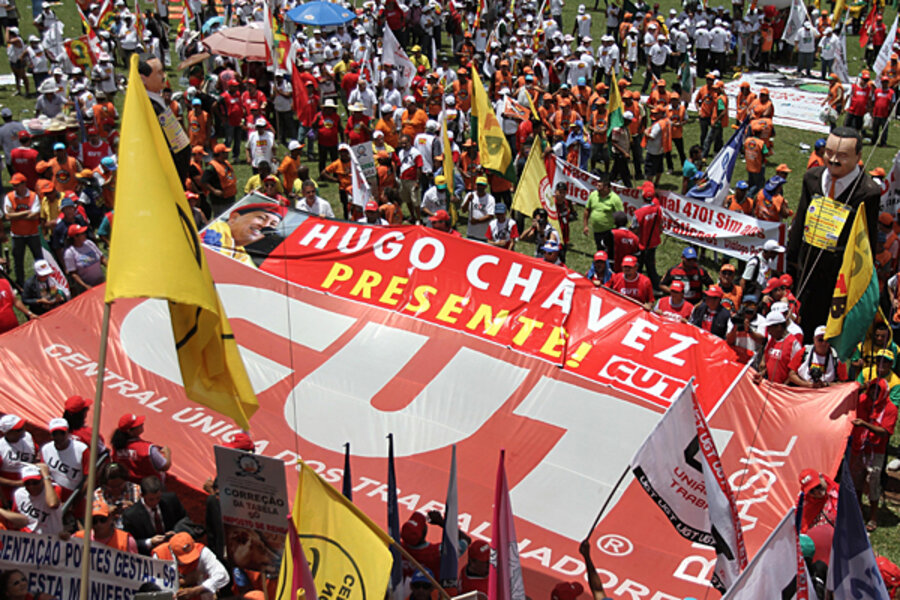In Russia, which maintained warm relations with Venezuela, President Vladimir Putin called Chávez a “great friend” of his country. He is expected to send several close aides to attend the funeral.
Italy’s Corriere della Sera newspaper dubbed Chavez Latin America’s “last caudillo,” while the Spanish daily El País dedicated dozens of articles Wednesday to the news of his death and its impact in Latin America and the world.
An editorial in El País predicted Venezuelan Vice President Nicholas Maduro could win the next election purely on the existing emotional support for his predecessor, but noted that "strongman regimes don't usually survive their icons for long."
The outsized personality of Hugo Chávez and his incomparable capacity to connect with many Venezuelans allowed him to weather the grave problems of his country without cracking politically. But it seems more than unlikely that his successor, whoever it is, will be able to assemble sufficient support to keep citizens tolerating for very long the enormous economic inequality, the everyday scarcity, the deep corruption or the rampant urban violence that afflicts the country...
Spain Prime Minister Mariano Rajoy, who maintained his distance from the late Venezuelan leader, called Chávez “one of the most influential figures in Venezuela’s contemporary history.”







